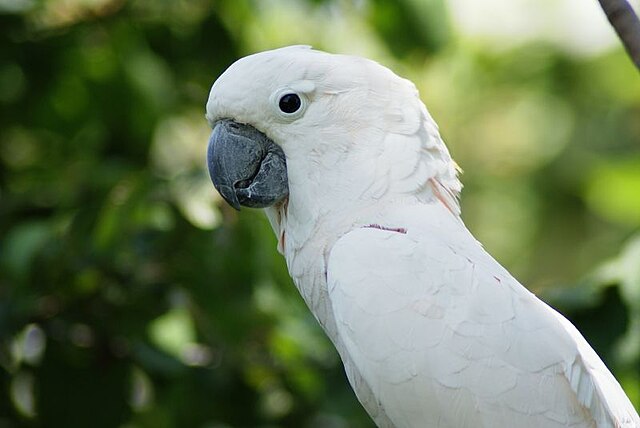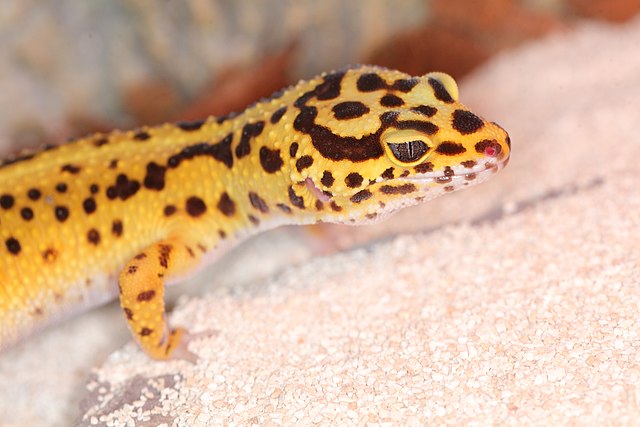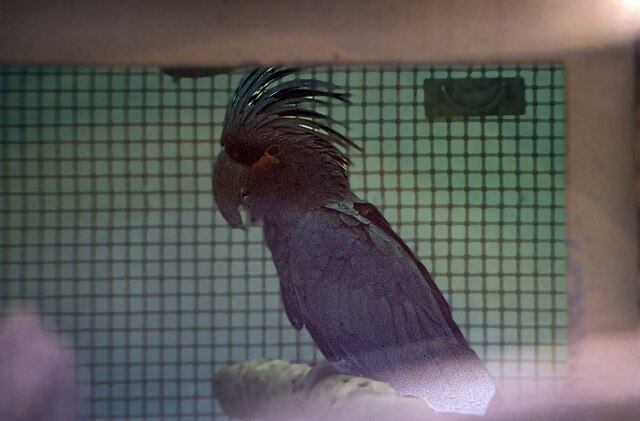Budgies (Melopsittacus undulatus), also known as budgerigars or parakeets, are delightful little birds that have captured the hearts of pet owners around the world. Their vibrant plumage, charming personalities, and ability to mimic speech make them incredibly popular pets. However, before bringing a budgie into your home, it’s crucial to understand their lifespan and how to ensure they live a long, healthy, and happy life.
Understanding the Budgie Lifespan
Budgerigars, more commonly known as budgies, are small parrots that have become beloved companions in households around the world. These charming and colorful birds are not only a delight to look at but also a joy to interact with. However, before welcoming a budgie into your home, it’s essential to have a comprehensive understanding of their lifespan and what factors can influence how long they will be a part of your life.
Factors Influencing Budgie Lifespan
The lifespan of a budgie can vary widely, but on average, they live for about 5 to 10 years. However, with attentive care and the right conditions, some budgies have been known to reach the ripe old age of 15 years or more. Several factors come into play when it comes to determining how long your budgie will live:
Diet
A fundamental aspect of ensuring a long and healthy life for your budgie is their diet. In their natural habitat, budgies primarily feed on seeds, but in captivity, their diet should be more diverse. Alongside seeds, include fresh fruits and vegetables to provide essential vitamins and minerals.
High-quality commercial pellets formulated for budgies can also be an excellent addition. Be cautious about feeding them foods that are toxic to birds, such as chocolate and avocado.
Cage and Environment
The living environment you provide for your budgie has a significant impact on their lifespan. A clean, safe, and spacious cage is essential. Ensure that the cage is large enough to allow them to fly and exercise their wings.
Budgies are highly active birds, so provide a variety of toys and perches to keep them mentally stimulated. Additionally, maintain a comfortable temperature in their environment, as extreme heat or cold can be harmful to these delicate creatures.
Social Interaction
Budgies are naturally social birds and thrive on interaction, especially with their human companions. Spending quality time talking to and playing with your budgie daily can significantly enhance their well-being.
If possible, consider getting a companion budgie, as they are highly social animals and often thrive in pairs or small flocks. This can prevent loneliness and ensure they have the social interaction they crave.
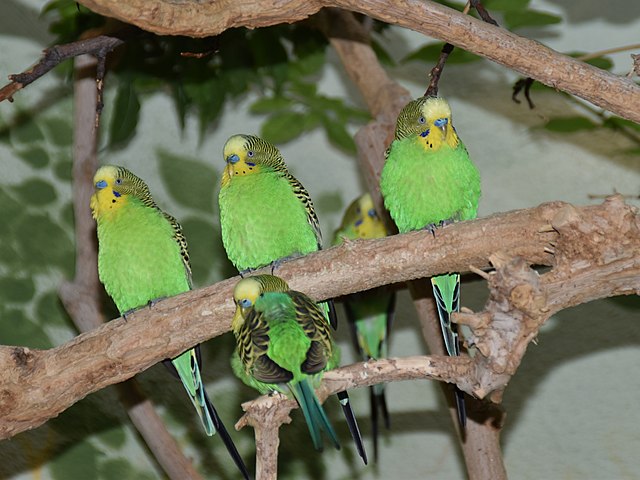
Healthcare
Just like any other pet, regular healthcare is crucial for your budgie’s longevity. Schedule routine check-ups with an avian veterinarian who is experienced in treating birds. These check-ups can help detect and address any health issues early on, ensuring that your budgie receives the appropriate care. Topics to discuss with your vet include vaccinations, parasite control, and proper grooming.
Genetics
Genetics can also play a role in determining a budgie’s lifespan. Some budgies may be more predisposed to certain health issues due to their genetic makeup. When acquiring a budgie, whether from a breeder or a rescue, it’s essential to research the source and ensure they come from a reputable lineage. A breeder with a good reputation is more likely to produce healthy budgies with a longer life expectancy.
In summary, understanding the budgie lifespan involves considering various factors that influence their well-being and longevity. By providing a balanced diet, a stimulating and safe environment, regular healthcare, and social interaction, you can maximize the chances of your budgie living a long and fulfilling life by your side
Signs of a Healthy Budgie
Budgies, with their charming personalities and vibrant plumage, can be a delightful addition to any household. As a responsible budgie owner, it’s crucial to be well-informed about the signs of a healthy budgie. Recognizing these signs will not only assure you that your feathered friend is thriving but also help you promptly identify any potential health issues.
Active and Playful Behavior
One of the most obvious signs of a healthy budgie is their active and playful demeanor. Healthy budgies are often full of energy and curiosity. They will hop, climb, and flutter around their cage or play area, exploring their surroundings with enthusiasm. These playful antics are not only entertaining but also an indicator of their well-being.
Clear, Bright Eyes
The eyes of a healthy budgie should be clear and bright. There should be no signs of discharge, cloudiness, or swelling around the eyes. Bright, alert eyes are a positive sign that your budgie is feeling well and alert to its environment.
Smooth and Well-Groomed Feathers
Healthy budgies take pride in their appearance, and their feathers reflect this. They should have smooth, well-groomed plumage that is free from tangles, bald spots, or signs of excessive preening. Regular preening is a natural behavior for budgies, but over-preening can indicate stress or health problems, so be mindful of this behavior.
Eager Appetite
A healthy budgie will have a hearty and eager appetite. They should show interest in their food and eagerly peck at seeds, pellets, fruits, and vegetables. Any sudden loss of appetite or a noticeable decrease in food consumption should be taken seriously as it can be a sign of underlying health issues.
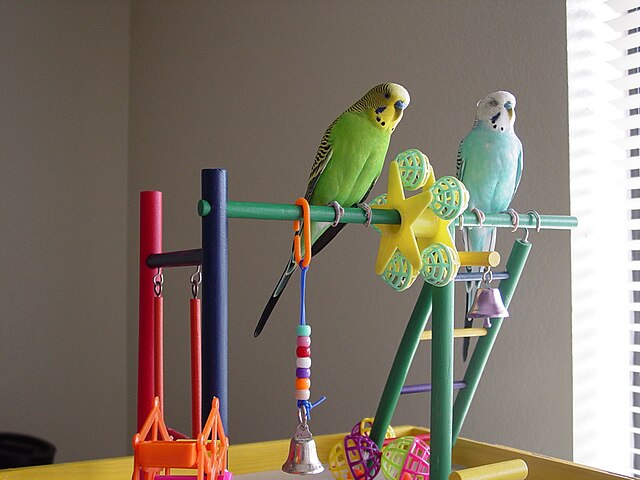
Responsive to Interaction
Healthy budgies are responsive to human interaction. They may chirp, chatter, or even mimic words and sounds when engaged with their owners. They enjoy being talked to, and many will readily step onto a finger when offered. Interaction is not only enjoyable for both you and your budgie but also a positive indicator of their overall well-being.
Regular and Well-Formed Droppings
Monitoring your budgie’s droppings is an essential part of assessing their health. Healthy droppings should be well-formed and consist of three components: solid feces, clear urine, and a greenish component called urates. Any significant changes in the color, consistency, or frequency of their droppings can indicate health problems and should be promptly addressed.
Shiny Beak and Nails
A healthy budgie will have a shiny, well-maintained beak and appropriately sized nails. Their beak should not be overgrown, scaly, or misshapen, as these can be signs of malnutrition or health issues. Nails should be at a reasonable length to prevent injury to the bird or themselves.
In conclusion, being attentive to these signs of a healthy budgie is essential for responsible budgie ownership. Regular observation and interaction with your budgie will help you establish what is normal behavior and appearance for your specific bird.
Enhancing Your Budgie’s Lifespan
As a devoted budgie owner, your goal is likely to ensure that your feathered friend enjoys a long, healthy, and fulfilling life. Enhancing your budgie’s lifespan involves a combination of proactive care, attention to their needs, and creating an environment that promotes their well-being. Here are some essential tips to help you achieve this:
Proper Nutrition
Consult with an avian veterinarian or an experienced budgie breeder to determine the best diet for your budgie. While budgies predominantly eat seeds in the wild, a well-balanced diet in captivity should include a variety of foods.
Alongside seeds, offer fresh fruits, vegetables, and high-quality pellets. These provide essential vitamins, minerals, and nutrients that are crucial for their overall health. Ensure that their food is always fresh and free from contamination.
Always provide fresh, clean water to your budgie. Dehydration can lead to health issues, so regularly check their water supply to ensure it’s clean and accessible.
Mental Stimulation
Budgies are intelligent birds that thrive on mental stimulation. Provide a variety of toys, puzzles, and interactive games in their cage to keep their minds active and engaged. Rotating toys and introducing new ones periodically can prevent boredom.
Allow your budgie supervised playtime outside of their cage. This not only provides exercise but also offers mental stimulation. Ensure the area is safe, free from hazards, and bird-proofed to prevent accidents.
Regular Exercise
Choose a cage that is spacious enough for your budgie to stretch their wings and move around comfortably. Budgies are active birds, and a cramped living space can lead to stress and health issues. Include multiple perches at varying heights to encourage climbing and hopping.
Whenever possible, let your budgie enjoy free flight in a secure, enclosed space. This not only helps them maintain muscle strength but also fulfills their natural instinct to fly. Ensure all windows and doors are closed during flight time to prevent accidental escapes.
Healthcare
Schedule regular check-ups with an avian veterinarian. These annual visits are crucial for detecting and addressing any health concerns early on. Discuss preventive measures such as vaccinations, parasite control, and proper grooming.
Continuously monitor your budgie for any signs of illness or distress, such as changes in behavior, appearance, or droppings. Early detection and treatment can significantly impact their prognosis.
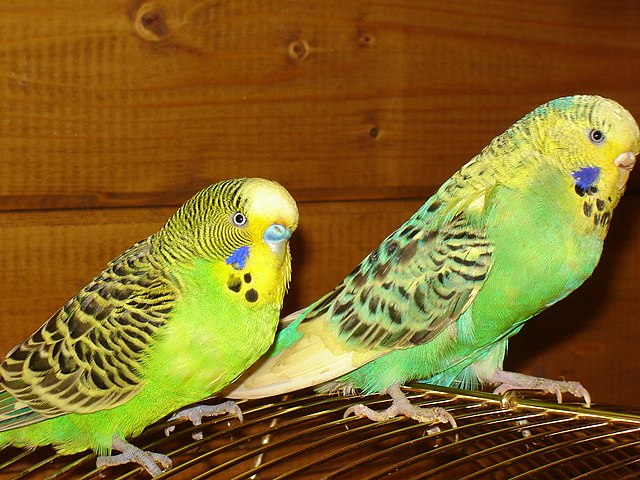
Companionship
Be an active part of your budgie’s life. Spend quality time talking to them, singing, and offering gentle interaction. Budgies thrive on socialization with their human companions, and your presence contributes to their overall happiness.
If possible, consider getting a companion budgie. Budgies are highly social birds and often thrive when they have a feathered friend to interact with. Ensure proper introductions and quarantine procedures when introducing a new bird.
Safety First
Keep your budgie’s environment free from toxic substances such as cleaning chemicals, candles, and fumes from non-stick cookware. Budgies are sensitive to airborne pollutants, so provide a clean and toxin-free space.
By following these guidelines and providing your budgie with the care, attention, and love they deserve, you can significantly enhance their lifespan. Remember that each budgie is unique, and being attuned to their individual needs and preferences is essential.
Final Thoughts
Budgies are delightful companions known for their charm and intelligence. To enjoy a long and fulfilling relationship with your budgie, it’s essential to understand their needs and provide the care they deserve. By offering a balanced diet, a stimulating environment, regular healthcare, and your love and attention, you can ensure that your budgie reaches the upper end of its potential lifespan.





